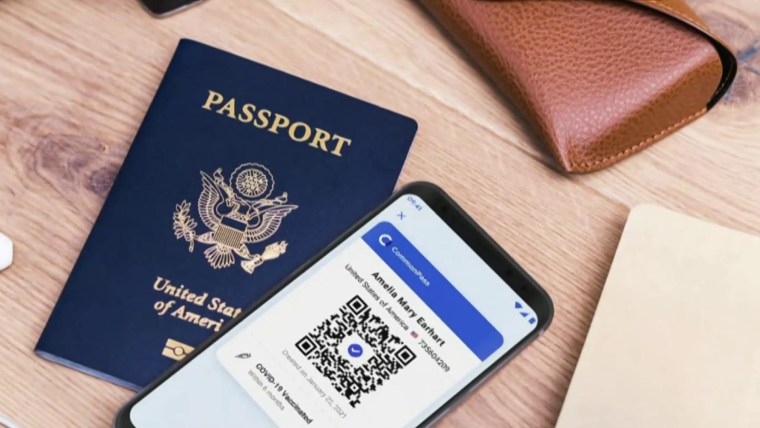When the NBA, the NHL and MLB started their playoffs this year, they observed strict rules about whom their players could interact with — "bubbles" meant to make sure outbreaks were limited and contained.
The NFL is instituting no such bubble for its coming playoffs, according to an internal league memo obtained by NBC News. The league informed teams this week that they can't require players or staff members to stay in isolation in hotel rooms beyond the night before a game.
Covid-19 cases and hospitalizations are surging across the country, outpacing the outbreaks early in the year that suspended organized sports across the United States. Since then, most leagues have restarted play even as players have tested positive, games have been delayed and the broader national situation has worsened.
"I think a lot of what happened with sport was what happened in the rest of the country," said Dr. Gretchen Snoeyenbos Newman, an infectious disease expert and assistant professor at Wayne State University in Detroit. "We weren't getting clear messaging from the top. Without that coordinated national response, it was left up to individual leagues, players, communities about what they were going to do, which is no way to run a pandemic."
The NFL declined to comment on the memo.
When sports leagues paused their seasons in mid-March, the focus quickly turned to whether and how they could resume. The discussions were bolstered by the success of the NBA's bubble strategy — which other leagues haven't followed.
The NBA's bubble required daily testing, mandated mask-wearing and kept players and league personnel isolated from the outside world to reduce the spread of Covid-19. And while it proved successful at keeping out Covid-19, many players spoke about the challenge of being isolated from families, friends and their homes.
"The NBA almost set an unrealistic expectation," said Zachary Binney, an epidemiologist who also works in the sports industry. "They came back in an incredibly responsible way and basically had zero cases. It was amazing. I would not have argued for them to do anything different.
"I don't think that was ever realistic for leagues outside of a bubble, and I don't think it was necessarily the way to measure whether they were successful or not," Binney added.
But most leagues that resumed playing didn't keep players in bubbles — and numerous players have tested positive. The NFL delayed 15 games because of positive tests, with many teams having to temporarily shut down their facilities. At the top level of college football, more than 130 games were canceled because of positive Covid-19 tests. Even the NBA, which has started its 2020-21 preseason outside a bubble, has had to deal with positive cases and canceled games.
The NFL, which wasn't in season when the pandemic began, was forced to make adjustments but ultimately stuck to its schedule, and it expects to stay on track through the Super Bowl.
"The number of Covid positives among our personnel has decreased by half in consecutive weeks, and this decline comes at a time when positive rates in our communities continue to climb," NFL Commissioner Roger Goodell said on a media call Dec. 16. "These latest reports are evidence our protocols are working. ... Our guiding principle all along here has been to limit the risk to players and personnel and continue to evolve our protocols when we see opportunities to reduce risk for our personnel."
Goodell did say testing would be extended to other people living in the households of players and league personnel to keep transmission down.
The situation is even more concerning at the collegiate and youth levels of sport, Binney said.
"There's a lot more unwelcome acceptance of the number of cases as just 'this is the price we have to pay for sports,'" Binney said. "They've just sort of realized that society is going to tolerate this, and so there's no reason for them not to play."
Dr. Jill Weatherhead, an infectious disease expert at Baylor College of Medicine in Houston, said the difference between professional and collegiate sports is important to consider when resuming play, because, unlike pro players and teams, collegiate players aren't paid, and not all collegiate teams have the same access to resources as their counterparts.
"This has not affected every community the same. It has separated itself economically as well as amongst race and ethnic lines, and we've seen the disproportionate effect of this disease in cases, hospitalizations and deaths," Weatherhead said. "We need to be thinking with that lens when we're making decisions in terms of risk."
Weatherhead said the disparate access to resources among college teams will ultimately affect how well they're able to protect their students and staff members.
That's important, because as all three experts said, teams' or leagues' ability to minimize spread can have further-reaching ramifications for their local communities.
"There are some people who are being very selfish, saying we want to play and not really acknowledging that they're not the only ones who matter, that other people have different things that they want," Binney said. "Like maybe your local nurses and doctors and grandparents would prefer you not play? Does that matter at all?"
The implications outside of sports have become even more salient now that Covid-19 vaccines have started to roll out, with more widespread availability expected in 2021.
"This is the fourth quarter. The sports metaphor is completely apt here. It is time to lock it down," Newman said. "Just make it through until the summer. The end is in sight. Let's not blow it now. We should be being as cautious as possible, because we know it's time-limited."
"how" - Google News
December 30, 2020 at 05:01PM
https://ift.tt/3o1AAlk
How the NBA's pandemic success created an 'unrealistic expectation' for sports leagues - NBC News
"how" - Google News
https://ift.tt/2MfXd3I
Bagikan Berita Ini















0 Response to "How the NBA's pandemic success created an 'unrealistic expectation' for sports leagues - NBC News"
Post a Comment